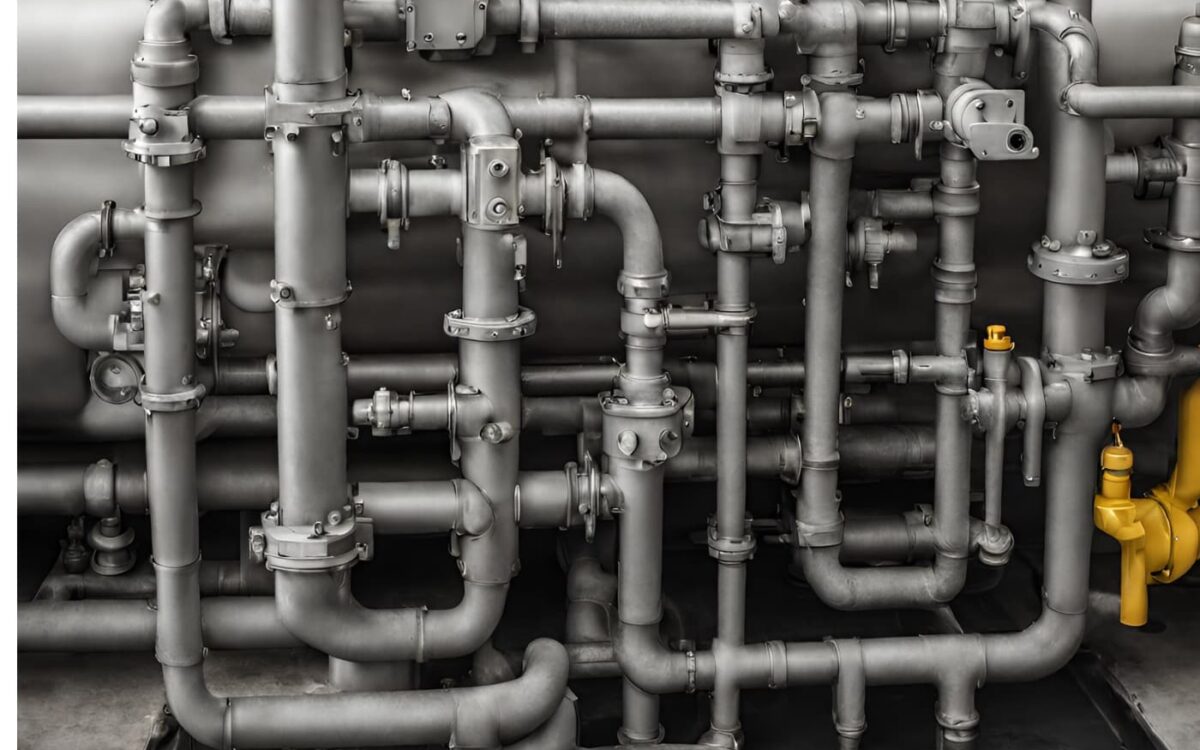Plumbing pumps are the unsung heroes of our homes, silently working to ensure a steady flow of water for our daily needs. Whether it’s for supplying water to our showers or plumbing pumps, including the renowned Taco plumbing pumps, play a vital role. To ensure these pumps continue to serve us efficiently, it’s crucial to perform regular maintenance. Today we’ll explore essential maintenance tips that can help prolong the life of your plumbing pump and keep it operating smoothly.
Regular Inspection and Cleaning
Regular inspections are the cornerstone of plumbing pump maintenance. Over time, debris and sediments can accumulate in the pump, causing blockages and reducing its efficiency. Make it a habit to inspect your pump routinely, checking for any signs of clogs or obstructions. Ensure that the pump’s intake and discharge lines are clear of debris. If you notice any blockage, it’s essential to clean it promptly to prevent further damage. By keeping your pump clean and free from obstructions, you can maintain its optimal performance and extend its lifespan.
During your inspection, pay close attention to the pump’s impeller, which plays a crucial role in the pumping process. The impeller is responsible for moving water through the pump, and any obstructions or damage to it can significantly affect your pump’s efficiency. Remove the impeller cover and inspect the impeller for any debris or buildup. Use a soft brush or cloth to clean it carefully. Be sure to turn off the power to the pump before performing any maintenance to ensure safety.
Regularly cleaning your plumbing pump not only ensures it operates efficiently but also helps maintain water quality. Accumulated debris and sediments can introduce impurities into your plumbing system, affecting water taste and quality. By keeping your pump clean, you’ll enjoy better water quality and a longer-lasting plumbing pump.
Lubrication and Greasing
Proper lubrication is crucial for the smooth operation of your plumbing pump. Lubricating moving parts helps reduce friction, preventing premature wear and tear. Consult your pump’s manual to identify the specific lubrication points and recommended lubricants. Typically, you’ll need to lubricate bearings, motor shafts, and other moving components. Be cautious not to over-lubricate, as excess grease can attract dirt and debris.
When applying lubricant, ensure that you use the correct type specified by the manufacturer. Applying the wrong type of lubricant can lead to performance issues and may even damage the pump. Follow the recommended schedule for lubrication outlined in your pump’s manual, but also consider the environmental conditions in your area. In harsher environments or high-usage scenarios, more frequent lubrication may be necessary.
Regularly greasing your plumbing pump will ensure it runs efficiently and quietly, extending its life. Proper lubrication not only reduces friction and wear but also helps maintain the pump’s energy efficiency, ultimately saving you on energy costs. Additionally, a well-lubricated pump operates with less noise, contributing to a quieter and more comfortable environment in your home.
Checking for Leaks
Leaks in your plumbing pump can lead to multiple issues, including water wastage, inefficiency, and potential damage. Inspect the pump for any signs of leaks, such as water puddles or wet spots around the pump or connections. If you identify a leak, address it promptly. Tighten loose connections, replace damaged seals, or seek professional assistance if needed. A vigilant approach to leak detection can prevent water and energy wastage while preserving your pump’s integrity.
Pressure and Flow Adjustment
Monitoring pressure and flow is essential for ensuring your plumbing pump operates within its designed parameters. Incorrect pressure settings can strain the pump, leading to premature wear. Adjust the pressure and flow settings according to your pump’s specifications. If you’re unsure, consult the manufacturer’s guidelines or seek professional advice. By maintaining the correct pressure and flow, you not only enhance the pump’s longevity but also optimize its performance, contributing to energy efficiency and cost savings.
Electrical Connections and Wiring
Safe electrical connections are paramount when it comes to plumbing pump maintenance. Regularly inspect the pump’s electrical connections and wiring for signs of wear, damage, or loose connections. Faulty electrical components can not only disrupt the pump’s operation but also pose safety hazards. Ensure that all electrical connections are secure, and replace any damaged wires or components immediately. By maintaining the electrical integrity of your pump, you not only extend its lifespan but also prioritize safety within your home.
Protection from Freezing
Winter brings the risk of freezing temperatures, which can be detrimental to plumbing pumps. To protect your pump from freezing, insulate the pump and its pipes. Additionally, consider using a pump cover or enclosure specifically designed for cold weather conditions. If your pump is not in use during winter, it’s advisable to drain it and store it in a frost-free location. Freezing can cause irreversible damage to pump components, so taking preventive measures is crucial to ensuring your pump’s longevity.
Professional Maintenance
While regular DIY maintenance goes a long way in prolonging the life of your plumbing pump, there are times when professional assistance is necessary. It’s recommended to schedule periodic professional maintenance, where experts can thoroughly inspect and service your pump. Professionals can identify and address potential issues that may go unnoticed during routine inspections. Investing in professional maintenance not only ensures the longevity of your pump but also provides peace of mind, knowing that your plumbing system is in capable hands.
Conclusion
In conclusion, maintaining your plumbing pump is essential for its longevity and optimal performance. Regular inspections, cleaning, lubrication, and vigilance in addressing issues like leaks are key to preserving your pump’s efficiency. Additionally, proper pressure and flow adjustments, electrical maintenance, protection from freezing, and occasional professional servicing all contribute to the extended life of your plumbing pump. By following these maintenance tips, you can ensure that your plumbing pump continues to serve you reliably for years to come.
